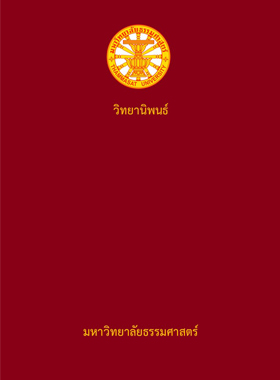
Diabetes mellitus (DM) is a kind of chronic disease that causes adverse economic and social effects since it requires long-term treatment. In every phase of treatment, people are likely to have risks of acute and chronic complications, which may lead to disability or death. Significant adverse impacts can also occur after DM. These major negative impacts cause tension arising from the nature of those diseases, such as suffering for months, years, or a lifetime, receiving treatment in a hospital regularly, and feeling depressed or having subsequent complications. Studies have shown that the most frequent problems of people with diabetes include such connecting factors as psychological stress and depression. Identifying non- pharmaceutical self- regulation approaches for stress and depression is essential for improving outcomes. Biofeedback and meditation can impact diabetes people self-regulation. The stress, depression and cortisol levels of diabetes people will be examined in term of practice meditation alone, combination meditation with skin conductance (SC) and skin temperature (ST) biofeedback, and those receive routine care. This study might benefit people with diabetes and offer support for new self-regulation approaches for stress and depression among people with diabetes. This research may provide evidence to support self- regulation approaches for stress and depression that can lead positively affects mental health in people with diabetes.
The sample group was composed of adult and older people who were diagnosed with type 2 diabetes mellitus with or without comorbidities that were treated at the General Practice Outpatient Department, Thammasat University Hospital (TUH) in Thailand. Additionally, the subjects were selected based on set characteristics and inclusion criteria, including the level of depression (mild level measured by BDI within a scoring range of 10-15 points). The participants were randomly assigned to one of the three RCT arms by using simple random sampling by lottery method (random assignment) as follows: 1) meditation (n = 34), 2) combined meditation with biofeedback (n = 34), and 3) a control group receive no training program (n = 34). All of three groups received routine care. Measurements were the Symptoms of Stress Inventory (SOSI), the SC and ST biofeedback instrument, and the Beck Depression Inventory (BDI). The researcher compared the differences in stress and depression among people that had meditated, people that had meditated and practiced the biofeedback program, and the control group. Data were analyzed using frequency, percentage, mean, standard deviation, MANOVA, and MANCOVA. The duration of the study was from June 2018 to October 2019.
For the results, the mean of the stress and depression of the control group was higher than the meditation and biofeedback group. The meditation only group had a higher mean for stress and depression than the meditation and biofeedback group with a statistically significant at the level of 0.05. According to the results, the people with diabetes that practiced meditation and biofeedback had a greater decrease in serum cortisol than those that practiced meditation alone. In the control group, the mean score of serum cortisol was increased with the statistical significance at the level of 0.05.
The research findings demonstrate the effectiveness of combined meditation with biofeedback program in reducing stress, depression and serum cortisol after the program was administered. The stress, depression and cortisol level of the diabetic people were reduced after the people had participated in the program for six sessions at approximately 60-90 minutes per session and one session per week. The subjects practiced meditation at home in the same manner as their practice in the hospital, and they practiced every day for at least 20 consecutive minutes for six consecutive weeks. Accordingly, the biofeedback program is a program that is capable of helping people learn how to relax, as biofeedback instruments feed information back to people through on-screen visual signals, thus enabling people to learn about the progress and success in their practice. Moreover, people were able to recognize and distinguish among the emotions and feelings emerging during the training. Because these emotions were positive, positive reinforcement facilitated learning in regulating emotions and feelings toward relaxation. By repetitively engaging in this behavior, familiarization was achieved. Thus, people were able to train themselves without needing their training machines. Combined meditation with biofeedback should be arranged for diabetic people in hospitals so that people can handle their stress and depression, which will promote their physical, mental, and social adaptation. Consequently, this study could be public education to people with diabetes that combined meditation with biofeedback is effective in decreasing stress and depression. Moreover, biofeedback can be offered in the form of a mobile health application for yielding positive short-term outcomes on physiological and self-reported stress indicators through the use of mobile data and communication technology, namely wearable health care devices, mobile computers, and medical sensors.









MARC Information